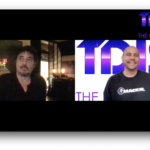The death of Pitchfork is worrying news for music journalism – and the women who read it

It was recently announced that renowned music website Pitchfork is to merge with GQ. Several staff members have been made redundant. The site’s apparent demise was described by other journalists as a “massive loss in music journalism” and “a death knell for the record review”. There has also been criticism from former Pitchfork writers of the way staff have been treated.
Pitchfork seemed immune to the issues that had plagued – and often closed – its European peers. The dynamic American website, which launched in 1995, became known for its style and acumen to attract the largest daily site audience of any of the Condé Nast titles.
Its notorious rating system meant “death” for some artists and was viciously opposed by at least one DJ and producer. Other bands, in part, were made by Pitchfork. It was this power, along with its irreverent viral content and online innovation, that led the brand to be purchased by Condé Nast in 2015.
The layoffs that have taken place through the merger with GQ suggest great change for Pitchfork’s remit. GQ’s content is far more product and celebrity focused and rarely incites controversy. Pitchfork, however, is known for its often scathing reviews and uncompromising commentary.
GQ’s content is generally complimentary, verging on promotional for the brands and products it features. Listicles and recommendations dominate its homepage. Music reviews at present are similar to Bandcamp’s editorial, an online store and community that links consumers directly to music artists.
The news follows the closure in 2020 of venerated British music magazine, Q, after 34 years, as well as the end of the print version of NME magazine in 2018. Such changes to these iconic publications are indicative of what journalist Chris Richards calls an “ugly omen for the entirety of music journalism.”
When Condé Nast purchased Pitchfork, its president, Bob Sauerberg, described it as “thriving.” And, according to its chief digital officer, Fred Santarpia, Pitchfork was a site bringing “a very passionate audience of Millennial males into our roster”. So what went wrong?
These print cuts are a result of dreaded cost-cutting convergence (the business strategy of integrating or centralising production of different products), increased competition and falling print advertising revenue, as well as changing income streams.
Diversity at GQ
GQ (formerly Gentlemen’s Quarterly) magazine and its obviously gendered remit doesn’t seem like an obvious home for Pitchfork. After all, nearly 44% of the brand’s readers are women.
When Puja Patel became editor in chief of Pitchfork in 2018, taking over from Ryan Schreiber, Pitchfork’s founder and longtime editor, her own story became part of the brand’s narrative.
A “week in the life” feature in The New York Times told of her taste making or breaking power, her position, her platform and the richness of her Big Apple life. Patel’s rise to prominence was allegorical to cultural shifts affirming her as a leader of new-wave feminism and a success story for those keen to promote diversity in the industry.
Women have topped Pitchfork’s album charts every year since 2018. And in the last five years, there has been a continual focus on covering musicians from diverse backgrounds, including female, queer and non-binary artists.
Patel’s tenure has been widely praised on social media as the unfortunate news of layoffs, including her own, broke. But as former Pitchfork writer Laura Snapes noted, the site had fostered a forum for a range of women and non-binary writers from around 2010 onwards. Together, they reshaped the brand’s output from the male-dominated indie-music heyday of the 2000s. It was in this period that hip-hop and pop started to be covered more regularly.
Bringing Pitchfork under GQ is a weird fit
In bringing Pitchfork under the “Gentleman’s Quarterly” brand, Condé Nast’s leadership seems to assume that music is a predominantly male pursuit. Pitchfork is not merging with other Condé Nast titles Vogue or Vanity Fair.
And I find it curious that Wired, (yet another media brand that is under the same ownership) and its progressively geared, environmentally conscious content, was not deemed a better fit for Pitchfork’s current audience. Where will the artistry and writing of musicians who don’t identify as men find its place in GQ? It’s not yet clear.
In 2021, Patel said that listeners care about the “community and humanity” of music. Sadly, it seems this spirit is not being upheld. As Susan DeCarava, president of the News Guild of New York said: “the people who make award-winning music journalism … deserve better than to be treated like disposable parts.”
GQ and Condé Nast did not respond to a request for comment.
Written by Michael Greenwell, Lecturer, Centre for Broadcasting and Journalism, School of Arts & Humanities, Nottingham Trent University
This article is republished from The Conversation under a Creative Commons license. Read the original article.
5 Ways to Support HipHopCanada:
Follow Canadian Fresh (HipHopCanada’s Spotify Playlist)
The post The death of Pitchfork is worrying news for music journalism – and the women who read it appeared first on HipHopCanada.



















Comments
This post currently has no comments.